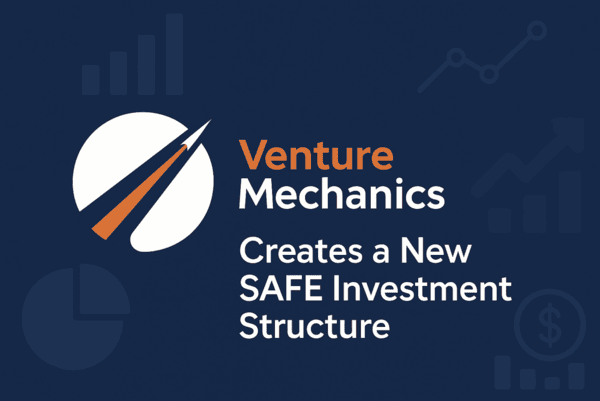The Y Combinator (YC) SAFE agreement has become the dominant instrument for early-stage startup funding, now used in 88% of pre-seed and seed financings according to Carta. While the SAFE is lauded for its founder-friendly terms and simplicity, it presents several challenges for investors—especially when a traditional priced round never materializes.
The Problem with Standard SAFEs
- No Priced Round, No Upside: If a startup raises money via a SAFE but never completes a priced equity round (like Series A Preferred Stock) and instead becomes self-sustaining, SAFE holders may be left with no shareholder rights to influence a potential exit. The only way their investments will convert into voting shares is after an exit even triggers that conversion.
- QSBS Tax Treatment Uncertainty: The IRS has yet to issue definitive guidance on whether SAFEs qualify as "pseudo equity" for the purposes of Qualified Small Business Stock (QSBS) tax treatment. This matters because, under IRC §1202 and the enhancements from the One Big Beautiful Bill Act (OBBBA) of July 4, 2025, investors can realize tax-free capital gains on up to $15M or 10x their investment—if their instrument qualifies.
Enhancing SAFEs for Investors and Founders
SAFEs are not set in stone. Like convertible notes, their terms can be customized. One powerful modification is adding an optional conversion to Common Stock at a predetermined post-money valuation, triggered by a majority vote of SAFE holders if a priced round does not occur within a set timeframe.
Why This Matters
- QSBS Eligibility: Optional conversion features can strengthen the argument that a SAFE is equity-like, potentially qualifying for QSBS benefits.
- Pro Forma Cap Table Clarity: With a determinable conversion price if a priced round does not occur within a set timeframe, companies can more easily model SAFE investments on their fully-diluted pro forma cap tables.
- Investor Protection: If it appears that the company may be acquired or go public before ever getting a priced round, SAFE noteholders will be able to convert to Common Shares beforehand, and potentially have influence on the outcome as a bona fide shareholders with voting rights.
The Venture Mechanics (VM) SAFE: A New Approach
Venture Mechanics has published a new SAFE template that addresses these shortcomings while maintaining founder-friendly flexibility. Building on the original "YC hybrid" SAFE—which offered both a discount to a future round and a valuation cap—the VM SAFE introduces several key enhancements:
Key Features of the VM SAFE
- Hybrid Terms Restored: Unlike the latest YC SAFE (YC4), which forces founders to choose between a discount or a valuation cap, the VM SAFE allows both, giving investors the better of the two.
- Optional Conversion to Common Stock: After three years, or any time before a qualifying equity or liquidity event, SAFE holders (by majority vote) can convert their investment to Common Stock at the valuation cap price. This gives them actual shareholder status, allowing them to vote on things like approving the sale of the company.
- Pro Forma Cap Table Inclusion: This structure allows SAFEs to be included on a pro forma cap table as as-converted Common Stock under predetermined assumptions for the scenario where a priced round does not occur within a set timeframe.
- Founder-Friendly by Extension: By making the SAFE more attractive to investors, startups can more easily raise capital, and founders themselves can benefit from the same QSBS tax advantages.
Multiple Benefits
- Upside Participation: Investors can convert their investments to votable shares prior to a triggering event, not as a result of a triggering event when their voting rights will be moot.
- QSBS Positioning: The structure supports a stronger case for QSBS qualification, though ultimate IRS determination is still pending.
- Flexible for Founders: Founders can still opt to remove the discount if they prefer a cap-only structure, but offering both terms can attract more investor interest.
See our related articles on Why SAFE Notes Are So Rapidly Overtaking Convertible Notes as the Structure of Choice for Pre-priced Rounds and How Changes to QSBS (Section 1202) in the OBBBA Further Incentivize Investing in Startups.
Download the new VM Hybrid SAFE Term Sheet and VM Hybrid SAFE Note to see these investor- and founder-friendly features in action.
